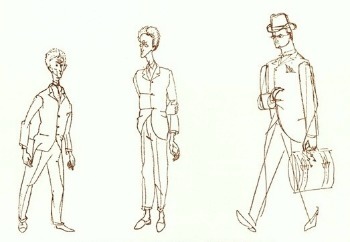THE Coimbra issue (also called “Question of Common Sense and Good Taste”) represented a controversy that took place in 1865 among Portuguese literati.
On one side was Antônio Feliciano de Castilho, a Portuguese romantic writer. On the other, the group of students from the University of Coimbra: Antero de Quental, Teófilo Braga and Vieira de Castro.
The Coimbrã Question was the starting point of the realist movement in Portugal. It represented a new way of writing literature, bringing to light aspects of literary renewal combined with the ideas that arose at the time around scientific issues.
Therefore, she moves away from the outdated molds of the ultra-romantic, thus attacking the cultural backwardness of the Portuguese society at the time.
Summary
The first group involved in the Coimbrã Question, led by Castilho, was formed by intellectuals who mainly defended the status quo literary. They had a traditional, academic and formal vision.
The second group, formed by young students from Coimbra, proposed denouncing society and showing man's life in a more realistic way. Therefore, they took a stand against the formal, conservative and academic posture of the Romantic School.
Students claimed the falsehood contained in romantic literature and proposed an artistic, cultural, political and economic transformation.
Thus, the Coimbrã Question begins with an acid critique by Castilho about Coimbra's students, the new literati.
Assigned to write the afterword for the “Youth Poem” by the romantic writer Pinheiro Chagas, Castilho defends romantic ideals.
In addition, he mentions the posture of writers who belonged to the University of Coimbra, inspired by French models, more libertarians, critics and avant-garde.
In the Letter, written on September 27, 1865, Castilho claimed that these literary aspirants destroyed the beauty of literature. According to him, they lacked common sense and good taste.
He made the comments after reading the works published that year by writers Antero de Quental (Modern Odes) and Teófilo Braga (Sound Storms).
Furthermore, after being attacked by Castilho, Antero de Quental writes one of the most emblematic works of Portuguese Realism entitled “Common Sense and Good Taste”.
It was written on November 2, 1865 and represented a response to Feliciano de Castilho in a sarcastic and ironic tone. Below are some excerpts:
“I just read a script from v. ex.ª where, on account of lack of common sense and good taste, one speaks with harsh censorship of the so-called school Coimbra's litteraria, and between two illustrious names I quote mine, almost unknown and above all unambitious.
This obscurity of mine makes the part of censorship that falls to me in a small way: while, on the other hand, my lack of concern for fame litteraria, my habits of spirit and my way of life, make me that same small part that remains so indifferent to me, that it's as if nothing reduce.
These circumstances would seem sufficient to impose a silence on me, either modest or contemptuous. They are not, however. I have two strong reasons to mention. One is the absolute freedom that my very independent position as a man without literary pretensions gives me to judge unabashedly, fairly, coldly, with good faith.
As I don't intend to log any, even the smallest, into the brilliant phalange of contemporary reputations, that's why, being on the outside, I can like no one else assess the figure, the dexterity and the grace even of the most brilliant chiefs of the glorious squad. I can also speak freely. And this is not a small superiority in this time of convenience, of precautions, of reticence—or, let us say the thing by its name, of hypocrisy and falsehood. Free from the vanities, ambitions, miseries of a position, which I do not retain, I can speak in misery, in the ambitions, in the vanities of this world so foreign to me, crossing through them and leaving pure, clean and innocent.”
Check the entire work by downloading the PDF here: Common Sense and Good Taste
Furthermore, Antero de Quental publishes the text “The Dignity of Letters and Official Literatures” and Teófilo Braga “Literary Theocracies”.
Therefore, Ramalho Ortigão writes the text “Today's Literature”. This fact left the students unhappy and led to the sword fight between Antero and Ortigão in Jardim da Arca D'Água in Porto.
Finally, Ramalho Ortigão is wounded, putting an end to Questão Coimbrã and starting Realism in Portugal.
realism in Portugal
O realism in Portugal it begins in the mid-nineteenth century, which put on two sides those who defended Romanticism and others, who defended Realism and Naturalism. This confrontation became known as the “Questão Coimbrã”.
The main representatives of Realism in Portugal were Eça de Queirós, Antero de Quental and Teófilo Braga. They belonged to the so-called “Geração de 70” or “Geração de Coimbra”.
They were more concerned with social issues and proposed new ways of writing literature. They presented new ideas and models that arrived from different European countries, mainly from France and England.
Thus, the Portuguese realist literature came to show that Portugal was founded on retrograde ideas which hindered the country's cultural development.
For this reason, this new literary phase focused on exposing realism, demonstrating life as it is, to the detriment of the romantic idealist vision.
The ideas of the “Geração de 70” were essential for the advancement of Portuguese literature. They were able to change postures and attitudes, bringing up social issues.
It is worth remembering that the Coimbrã Question lasted months and finally ended with a sword duel between Antero de Quental and Ramalho Urtigão.

